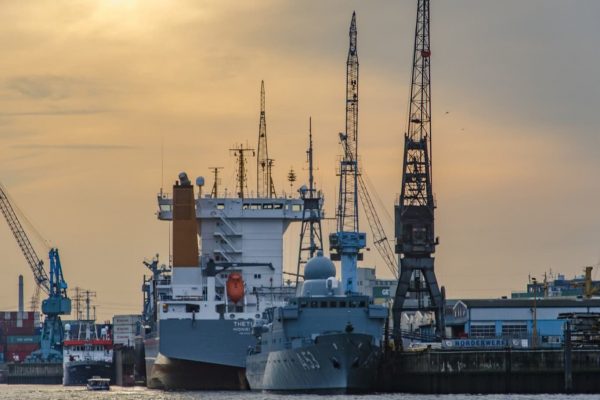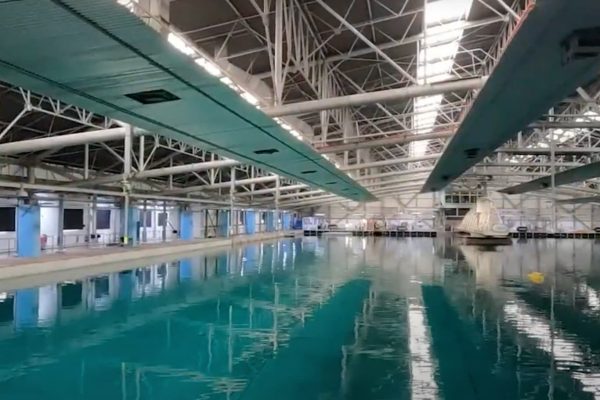Urgent Reforms Needed in the Maritime Cinderella
Despite the significant contribution of the maritime sector to the UK economy, it has often been undervalued or overlooked. As 95% of goods come to the UK by ship and the sector employs 185,000 people, it’s imperative that we recognise its importance. The Transport Committee has made a stride in this direction, publishing a report on the UK Government’s Maritime 2050 strategy.
This report calls for investment in innovative technology, cleaner fuels, and workforce training, a crucial blueprint to bolster the sector’s global competitiveness. A critical analysis of the Department for Transport’s Maritime 2050 strategy has been laid out, with recommendations for refining it from a mixed bundle of aspirations into a concise action plan.
Pushing for a Decarbonised Future
The Chair of the Transport Committee, Iain Stewart, has underlined the urgent need for decisive, action-oriented plans. He emphasises the industry’s requirement for sustained support to radically cut carbon emissions, a formidable challenge that can’t be tackled without focused governmental assistance.
Stewart has urged the government to expedite the implementation of the Clean Maritime Plan. This crucial step will reassure the industry and facilitate investments in low-carbon shore power, new vessels, infrastructure, and innovative technology, thereby steering the sector towards a greener future.
People Power: The Key to Sector Success
The report does not overlook the human factor in the sector’s success. Urging fairer wages and improved seafarer treatment, it calls for the government to roll out its welfare charter promptly. Enforcing the UK minimum wage equivalent for seafarers who frequently work in the UK, albeit on ships registered abroad, will be a crucial step in this direction.
Simultaneously, the Committee identified a pressing need to elevate the sector’s attractiveness as a career option. They stressed the importance of dispelling misconceptions and highlighting the diversity of roles within the sector, specifically targeting young people, women, and those from diverse backgrounds.
Navigating the Course to Net Zero Emissions
Decarbonising the maritime sector presents a considerable challenge, but also an opportunity for the UK to become a leader in zero-emission shipping. The Government’s aspiration for the UK to be at the forefront of clean maritime technology aligns with this aim, but the industry sees the net zero emissions target as its most significant challenge.
Against this backdrop, the Committee’s report calls for an accelerated rollout of a revised Clean Maritime Plan, emphasising that “the market may benefit from further policy certainty.” It also highlights the need for state investments and long-term commitment to mature technologies to help the sector achieve net-zero emissions.
Workforce Development: Embracing the Winds of Change
The maritime sector faces a critical challenge: an ageing workforce in an era of rapid technological change. Experts have raised concerns about the ability to recruit and retain younger workers or those from diverse backgrounds.
To meet this challenge, the report urges the DfT to assess potential barriers to training access and enhance current educational systems. It further suggests the potential benefits of providing fully funded training places for both officers and ratings as a means of attracting fresh talent.
Seizing the Helm of ‘Smart Shipping’
The UK stands at the forefront of maritime autonomy, and ‘smart shipping’ presents a major commercial opportunity. However, to exploit this opportunity, it’s essential to have a well-defined regulatory framework for the rapidly evolving technological landscape.
The Committee calls on the DfT to clarify the regulatory framework swiftly, ensuring the sector’s innovators can seize this opportunity. The establishment of the Centre for Smart Shipping will also empower the sector to nurture innovation, thereby boosting its competitiveness on the global stage.
Beyond Enforcement: Protecting Ports Authorities
In the aftermath of controversial employment practices by P&O Ferries, the government intends to enforce the UK national minimum wage equivalent for all workers on ships that frequently visit UK ports. This is a welcome step, but the enforcement process must be designed carefully.
The Committee cautions against passing the enforcement burden onto individual harbours and maritime agencies. Instead, it recommends safeguarding them from undue enforcement responsibilities, thereby ensuring the efficiency and competitiveness of the ports sector.
Refining the Maritime 2050 Strategy
For the Maritime 2050 strategy to be a useful tool, the Committee suggests a more streamlined approach. They propose the DfT hold dialogues with the industry and set concrete targets, which will offer a clearer direction for the sector.
The Committee also calls for a distinction between specific actions and aspirations in the Maritime 2050 strategy. The lack of clear priorities and focus has been flagged as a concern, highlighting the need for better-defined plans and targets.
Levelling Up Coastal Areas
Lastly, the report proposes a stronger emphasis on ‘regional maritime clusters’ to invigorate coastal areas and often overlooked sectors such as coastal shipping and inland waterways. This would involve a cluster of firms and institutions around ports, enhancing the attractiveness of the UK’s regional maritime offer.
The Committee argues that this part of the sector should also be seen as an area of growth for domestic seafaring jobs, suggesting a review of the funding streams available to promote modal shift.
The waves of change are here, and the maritime sector stands at the brink of a sea of opportunities. With swift and effective implementation of these recommendations, the UK’s maritime sector can continue to thrive, bolstering the economy and helping the nation sail towards its environmental commitments.




